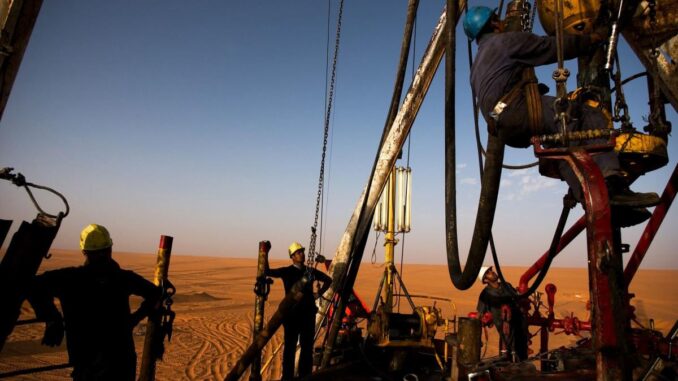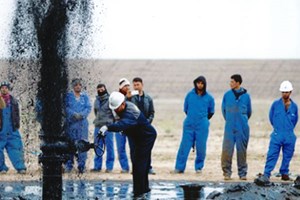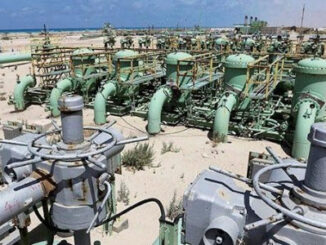
(Bloomberg) — Libyan Prime Minister Abdul Hamid Dbeibah said the country’s crude exports are on track for full resumption after months of outages as he justified his replacement of the state-run oil company’s leadership.

All oil fields and ports are restarting, and electricity output will increase as well, Dbeibah said Sunday during the first meeting of the new board of the National Oil Corp., which was televised by a Libyan channel.
He said the overhaul of the NOC board, rejected by former chairman Mustafa Sanalla and supporters, was based on the consensus of all Libyan groups and not part of a political deal.
“We need to facilitate the entry of big oil companies, especially European ones, to help us increase production and develop the sector,” Dbeibah said. He vowed to use higher crude prices to pay bigger salaries to oil workers.
The Libyan state firm’s new head said at the weekend that production and shipments were resuming after a deal was reached with protesters who’d been blockading many of the major facilities since the first quarter. The actions had halved the OPEC nation’s output and caused chronic electricity outages, stoking public anger.
The NOC said on Twitter Sunday that an Italian-flagged tanker had entered Brega’s oil terminal to load a shipment.
Following the announcement of the lifting of force majeure on all fields and oil terminals in #Libya by the Board of Directors. The oil tanker IBELA, which carries the Italian flag, is now entering to load and export a shipment through the Brega oil terminal of the Sirte Oil&Gas. pic.twitter.com/Y6KTAP8ygP
Libya’s energy facilities have been at the heart of the North African nation’s conflicts over the past decade, with various groups shutting down oil output to press their political and economic demands.
Dbeibah on July 14 appointed Farhat bin Qadara as NOC chairman, replacing Sanalla, the long-term holder of the post. Sanalla had frequently been at odds with the oil ministry that was reinstated by Dbeibah’s Tripoli-based government.
Dbeibah said Sunday the old board would be welcome should they want to cooperate and return to work, but the government would respond in kind to any use of “force.”
Dbeibah himself faces a challenge from a rival premier picked by parliament, Fathi Bashagha, who has the support of some of the country’s myriad militias, raising fears of another round of conflict.
Source: Worldoil.com



